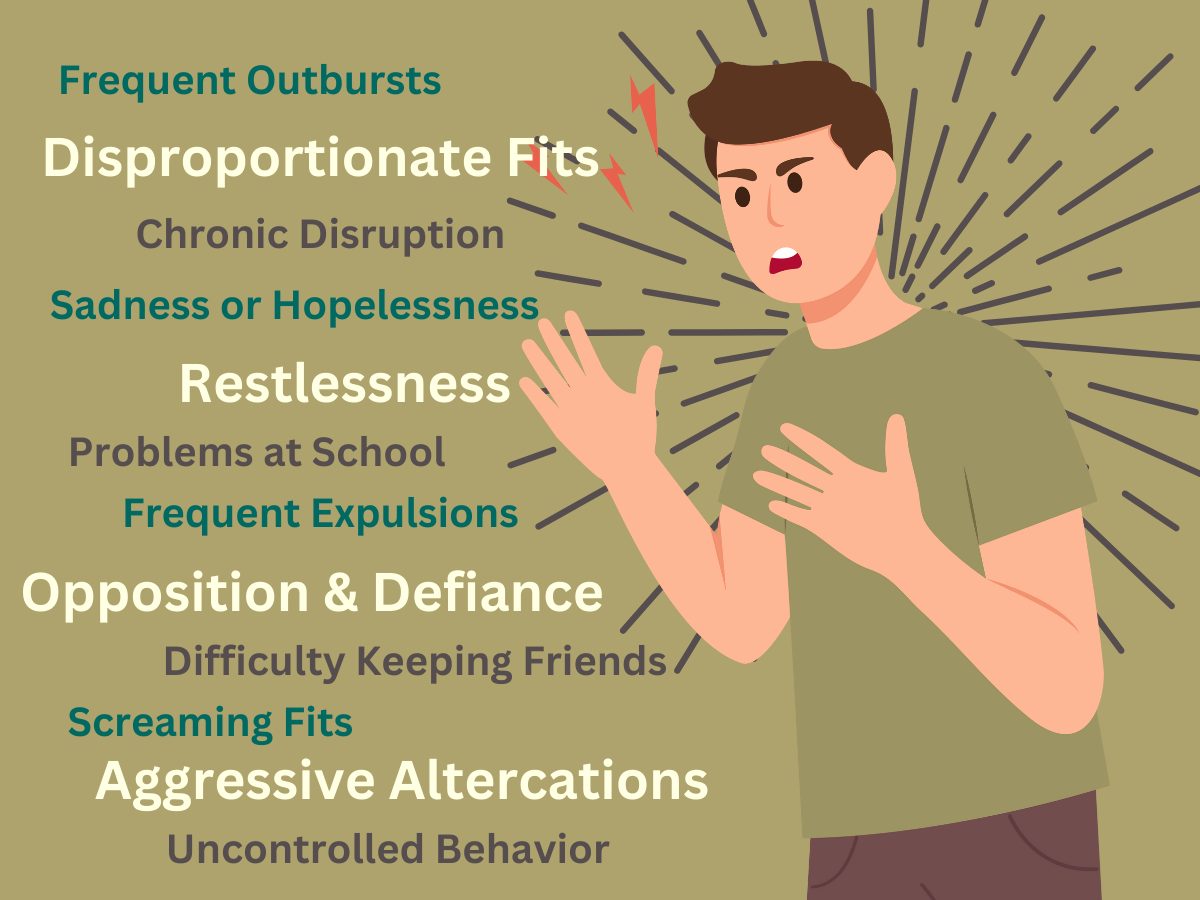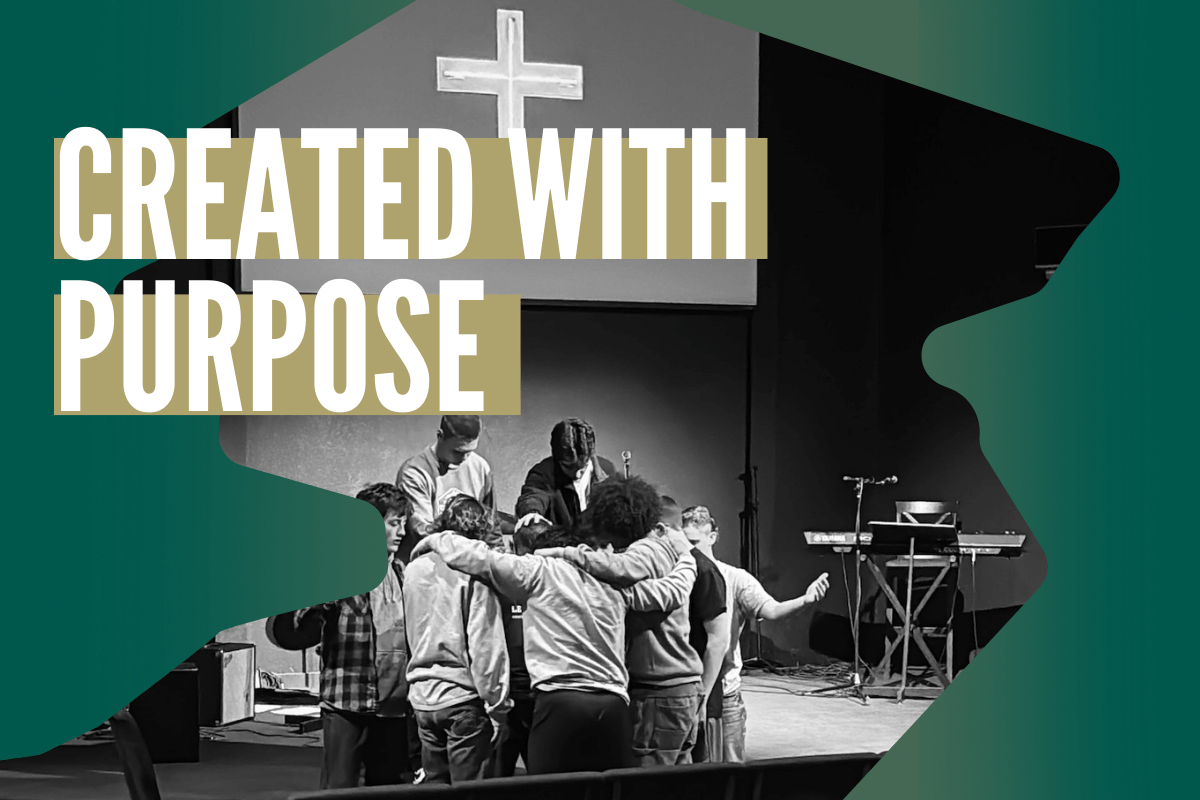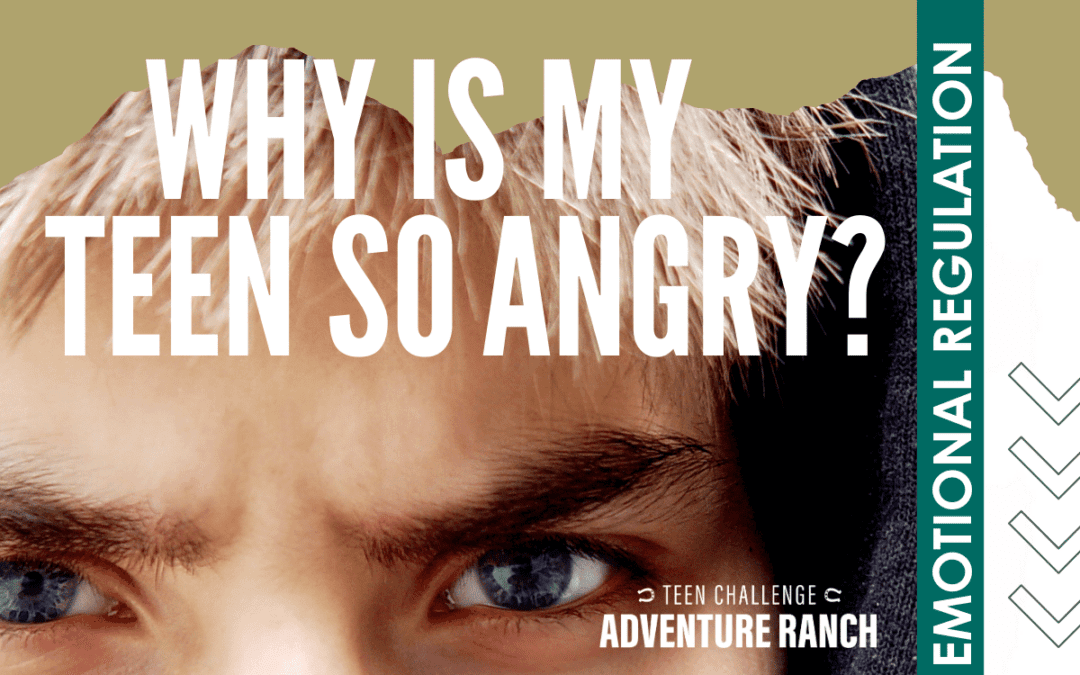Why Is My Teen So Angry?
Anger can be a useful emotion. It helps us identify when our personal needs are unmet, when a boundary has been crossed, or when we have an unresolved issue that needs work.
In teens, anger can even be frequent. Changes in brain development and hormone production paired with a near-constant cycle of self-exploration and testing boundaries can elicit more frequent heightened emotional responses.
Anger can also be a sign of a deeper struggle; especially if the emotional response is frequent, poorly controlled, or disproportionate to the situation.
Healing the hurt behind anger requires work to address the underlying emotional, mental, and spiritual causes.
When is Anger in Teens Abnormal?
While anger is a normal and sometimes even productive emotional response, it is tightly linked to behavior that may not be safe or acceptable.
Frequent or intense anger outbursts are often the first sign of trouble. While the teen may not be escalating to physical violence, the lack of emotional regulation should be considered as a serious warning sign.
Outpatient therapy is a good first step in helping a teen work through anger and learn techniques to regulate their emotional responses.
If anger becomes chronic, is interfering with daily life, or puts the teen or others in danger, a more intensive intervention may be appropriate.
Signs of Uncontrolled Anger in Teens:
- Disproportionate Outbursts
- Persistently Stewing in Feelings
- Leads to Aggression, Violence, Self-Harm, or Property Damage
- Hurts Relationships
- Disrupts School Performance
- Accompanied by Depression, Anxiety, or Trauma

Using Anger as a Mask for Deeper Emotions
Teens often use anger as a defense mechanism to mask deeper emotional disturbances they may not fully understand or know how to express. Beneath the surface of their outbursts, they may be struggling with feelings of rejection, fear, sadness, or inadequacy.
Instead of revealing their vulnerabilities, they turn to anger because it feels more powerful and protective. For some, anger becomes a shield against painful experiences such as trauma, bullying, family conflict, or academic pressure. Rather than confronting these emotions directly, they lash out at others, creating a false sense of control over their internal turmoil.
Unresolved emotional pain can cause a cycle where anger becomes the primary response to any discomfort. A teen who feels unheard or abandoned may react with defiance instead of expressing sadness. Someone battling anxiety may lash out rather than admit they feel overwhelmed.
Over time, this pattern can damage relationships and prevent true healing. Parents and caregivers must look beyond the anger and ask, “What is my teen really trying to communicate?” By creating a safe space for open dialogue and providing the emotional support teens need, families can help break the cycle of anger masking deeper struggles.

The Spiritual Component of Peace and Anger
Without a strong spiritual foundation, they may feel lost, questioning their purpose and worth. This inner restlessness can manifest as frustration and outbursts, as they search for meaning in a world that often offers confusion instead of clarity.
Faith provides an anchor, helping teens find stability in God’s truth rather than being ruled by fleeting emotions. When they understand they are loved, valued, and created with purpose, they can approach challenges with a spirit of resilience rather than reacting in anger.
Practical Tips for Parents of Angry Teens
Matching your teens’ emotional charge is rarely a productive or useful response to anger. Instead, try switching things up–use these practical strategies the next time you and your teen are toe-to-toe.

Listen Before Reacting: Create a safe space for open conversations by resisting the urge to lecture–or interject an opinion. You have a lot of wisdom to give, but it’s best shared in a cooperative state.
When you react emotionally, or jump straight to trying to solve your teens problem, your teen is likely to perceive that you feel he is not competent or capable, undermining his self confidence.

Model Healthy Emotional Regulation: Show your teen how to process anger constructively. They often do what they see–including regulating emotional responses and displaying anger.
Being intentional about how you handle your emotions in front of your teen can show them that emotions are normal and that there are appropriate, healthy ways to express feelings of anger, disappointment, and frustration.

Encourage Positive Outlets: If pent-up energy is part of the problem, try to get your teen to funnel some of that into sports, creative projects or service opportunities. When we focus on others, we shift our thinking from inward to outward and improve our emotional stability.
These activities can help meet core needs in healthy, constructive ways, limiting the opportunities for negative influence.

Prioritize Faith and Connection: Help your teen strengthen their spiritual well-being as a counterbalance for the mental and emotional well-being through prayer, devotionals, and community support.
Adolescence is about discovering who we are–defining our identity and purpose as individuals. This leads to big questions like “Who Am I?” and “Why Am I Here?” It’s important to balance constructive (and sometimes negative) messaging with love and purpose.

Seek Professional Help When Needed: Therapists, pastors and peer support groups can all be a source of help for a teen struggling with mental, emotional, or spiritual well-being who is experiencing poorly controlled anger or aggressive behaviors.
If your teen is experiencing a mental health emergency, call 988 to get help now.
Helping your teen learn to manage anger and develop appropriate emotional regulation requires a multi-faceted approach addressing mental, emotional, and spiritual well-being.
Teen Challenge Adventure Ranch is a Christ-Centered residential treatment center for teen boys ages 14-17. We blend clinical therapy with a faith-based approach to address root causes and build systems of support for long-term, sustainable recovery.



